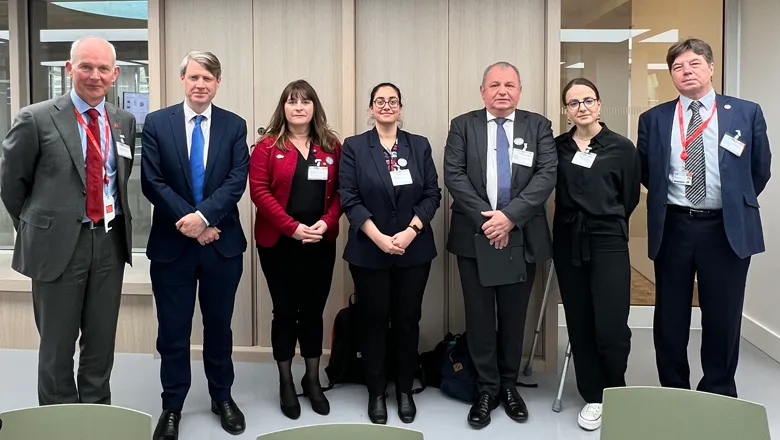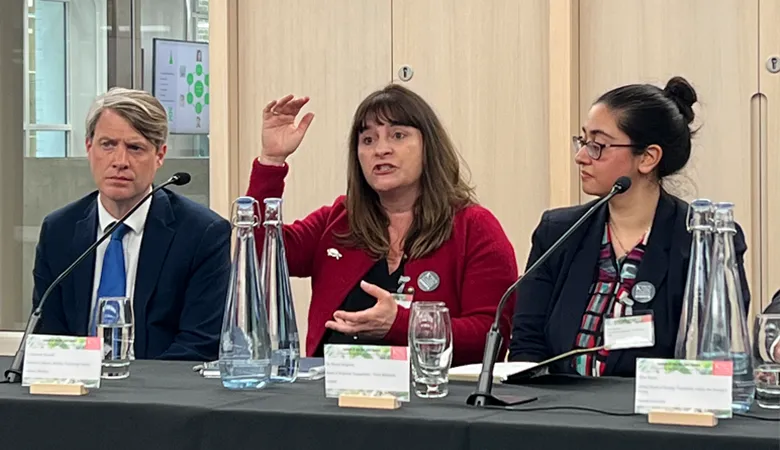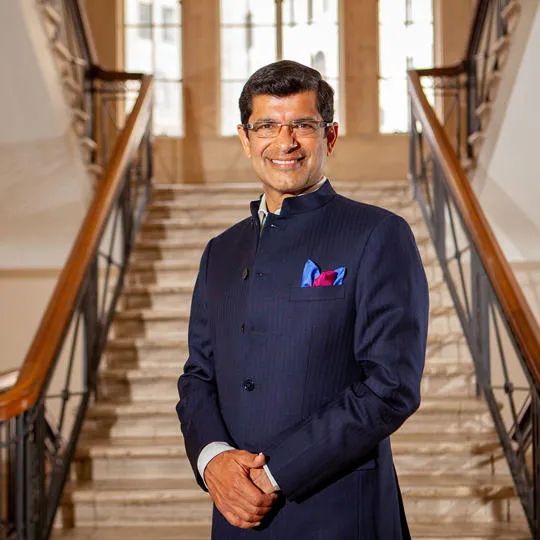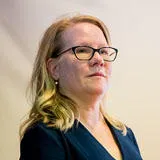Academia, business and policy makers must work to forge closer ties to better deliver and implement net zero, and it will be the work of institutions like this to solve not just the technological challenges of sustainable development, but the people and skill challenges as well.”
Rt Hon Chris Skidmore MP
20 April 2023
"I'm not aware of any other Higher Education institution that has a dedicated Net Zero Centre like the one at King's."
MPs, policymakers and business leaders joined the launch of King’s Net Zero Centre this week.

Leading voices from across academia, industry, finance and government joined forces with representatives from King’s College London for a panel event to launch King's Net Zero Centre.
With an ambition to be a world-leading interdisciplinary institution, the Centre brings together research from across the university to generate solutions for sustainability and the transition to cleaner energy.
Chris Skidmore OBE, MP and Chair of the Independent Government Review on Net Zero, was part of the panel following his speech at the launch of the independent review at King’s earlier this year. He said:
“I'm not aware of any other Higher Education institution that has a dedicated Net Zero Centre like the one at King’s. While it may be the first, it will certainly not be the last.”
Developed within the Faculty of Natural, Mathematical and Engineering Sciences, the Centre works with disciplines as diverse as law, engineering, physical mathematical and the social sciences to nurture and facilitate discoveries that will push society towards net zero. By educating scientists, engineers and policy makers within this holistic environment, the Centre aims to bring diverse practitioners together to achieve interdisciplinary solutions to net zero.
Part of King’s Climate & Sustainability, a multi-million-pound programme to accelerate the university’s responses to the climate challenge in teaching, research and operations, the Net Zero Centre brings together sustainability research from across King’s to deliver real-world technological solutions for climate change mitigation and adaptation.

In the spirit of cross-sector collaboration, President & Principal of King’s, Professor Shitij Kapur, welcomed attendees from across academia, industry and policy highlighting the importance of meaningful and global collaboration on climate change, including training the next generation of change makers. He said:
"Sustainability will not be solved by those acting just for themselves or just by themselves. It will be solved globally, brick by brick, across disciplines, industries and governments.
"With the Net Zero Centre, King’s is bringing together the breadth of its cross-faculty expertise to embed sustainability in everything we do and co-ordinate real, lasting impact when the threat of climate change is calling for a fundamental change in leadership, education and innovation.”
Co-directors of the Net Zero Centre Professors Barbara Shollock and Anatoly Zayats went on to introduce a panel of leading, cross-sector figures chaired by Professor Frans Berkhout Assistant Principal (King's Climate & Sustainability). Chris Skidmore MP was joined by Dr Elizabeth Rowsell OBE, Director of the Johnson Matthey Technology Centres, Dr Sinead Balgobin, Head of Regional Engagement (West Midlands) at the Engineering and Physical Sciences Research Council (EPSRC), Allan Baker, Global Head of Energy Transition within the Energy+ Group at Société Générale, and Christina Rehnberg, Environmental, Social and Governance Director at Delancey.
Together, the panellists spoke of the need for collaboration and education between peers to tackle global climate change. They highlighted the practical barriers that stand in the way of net zero, including financing, regulatory frameworks and skills gaps, but also the opportunities it presented.
By reforging partnerships across academia, industry and policy, they emphasised the opportunity to create agile funding and research frameworks to support energy transition. The panel concluded that there was no future economy without a green economy, and siloes must be broken down between sectors to achieve this.
Closing the session, Professor Frans Berkhout referenced the scale and urgency of the problem at hand, as well as the part institutions like the Net Zero Centre play in solving it.
Net Zero is the greatest global challenge of the 21st century. It asks fundamental questions about the future of our economy and societies, and about the technologies we use. Universities will play a critical role in net zero transitions, educating and training people, asking questions about how we get to Zero, and proposing solutions that can lead to fair and just outcomes. King’s Net Zero Centre is one of the major new initiatives we are launching to make good on our climate commitments.”
Professor Frans Berkhout




